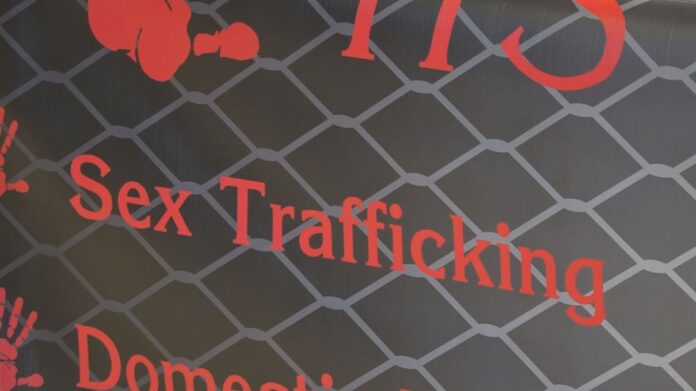Governor Henry McMaster was joined by South Carolina lawmakers and Congresswoman Nancy Mace for a ceremonial bill signing for the new sex trafficking law, S. 142.
COLUMBIA, S.C. — A new law went into effect in July to help protect victims of sex trafficking by expunging their records and protecting minors from prosecution while protecting their addresses.
The law also aims to strengthen prosecution for kidnappers and those trying to lure children away.
Expunging records and protecting minor victims from prosecution
Many victims of sex trafficking are also pulled into other crimes that stay on their record, says South Carolina Attorney General Alan Wilson.
“Property crimes drug crimes. You’re selling you’re dealing you’re doing the drugs you get caught up. You’re charged with prostitutions,” said Wilson. “We want to make sure that people have the opportunity to be expunged for those have been charged and convicted in the past and moving forward we want to be able to protect minor victims of trafficking.”
Lighthouse for Life Chief Operating Officer Lisa Kejr says the new protections could help hundreds of thousands in South Carolina.
“I know that we’ve worked with well over 100 individuals and the vast majority of those that we come in contact with have some sort of criminal record connected with their abuse,” said Kejr. “It breathes life. It breathes hope. It makes victims feel like they really are a human being and they’re valued and they have a chance.”
There are also provisions in the law to create a program victims can apply for to conceal their addresses to protect them from harassment.
Strengthening prosecution for kidnappers, makes ‘luring’ a felony
The law also makes it a felony to attempt to lure a child away, when lawmakers say it was previously only illegal once a child was taken or the “door was shut.” Congresswoman Nancy Mace detailed two incidents in Mount Pleasant where men reportedly tried to “lure” children away with a promise of candy or petting a dog. She said those cases were technically considered illegal.
“What I didn’t know at the time it’s not until you shut the door in the vehicle or shut the door in a dwelling or a home that it becomes a crime,” said Rep. Mace. “So the moment that a kid was at a playground or at a park, that time between the playground or the park and the car, it wasn’t illegal to lure that child away.”
Other components of the law include allowing those sentenced for murder to also be charged with any associated kidnapping, whereas previously, you could only be sentenced for one.
